Highlights
92 highlights shown
Highlights
Region
Destination
-
Show all
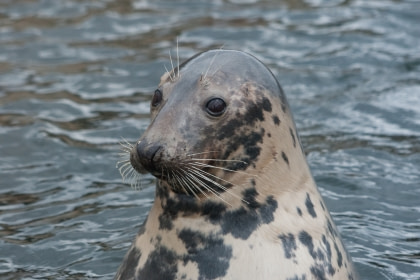
Grey Seal
Wildlife
Bearing the less-than-noble nickname "hook-nosed sea pig," these sleek swimmers were once close to extinction in the US and are now protected under American law
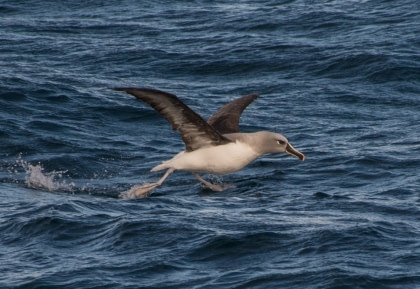
Grey-headed Albatross
Wildlife
These "gold-mouthed" mollymawks live at sea but spend most of their lives in the air, protecting their title as world's fastest horizontal flier
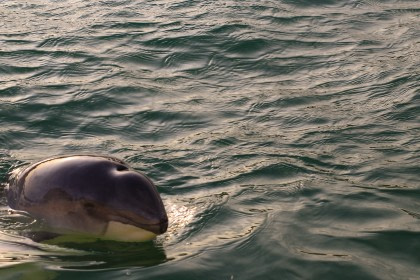
Harbour Porpoise
Wildlife
Known to medieval literates as "pig fish," these adventurous mammals sometimes swim far upriver and away from their homes at sea
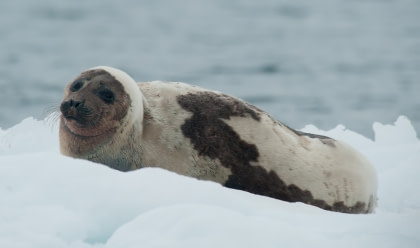
Harp Seal
Wildlife
These "saddlebacks" are historically known as true ice enthusiasts, visiting the land mainly for breeding and spending the bulk of their lives at sea
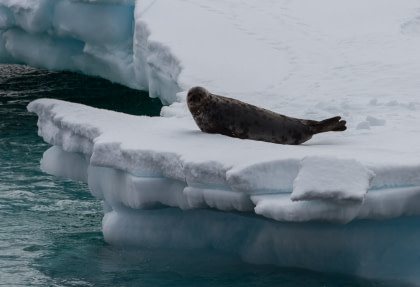
Hooded Seal
Wildlife
Named for their hooded nasal cavities, these territorial pinnipeds tend to defend their homes more forcefully than others of their family
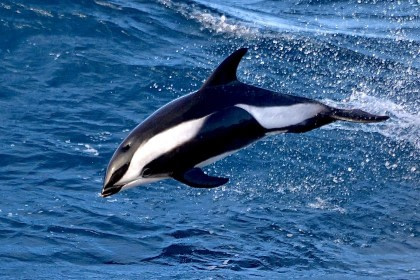
Hourglass Dolphin
Wildlife
We most often see these easily identifiable dolphins along the Drake Passage, though they may also appear in both Antarctica and the sub-Antarctic
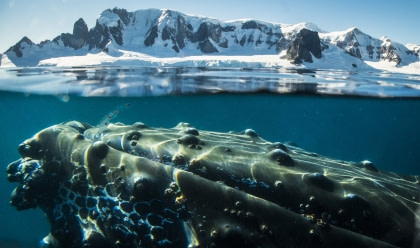
Humpback Whale
Wildlife
Also known as "great-winged newfoundlanders" for their wing-like flippers, these cetaceans earned their more contemporary name by the way they bow their backs before a dive
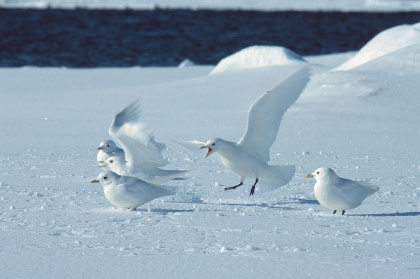
Ivory Gull
Wildlife
These "lovers of sea ice" have been dwindling since the 1980s, though whether this is due to relocation or approaching extinction is unknown
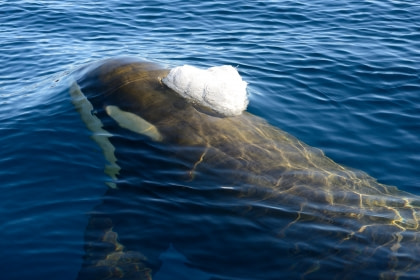
Killer Whale
Wildlife
Technically a kind of dolphin, orcas were once thought to appear as whales in the summer and wolves in the winter
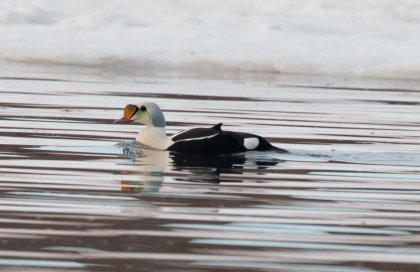
King Eider
Wildlife
These are one of the largest sea ducks in the Northern Hemisphere, though their weight can vary considerably – especially among females, who rarely feed during incubation
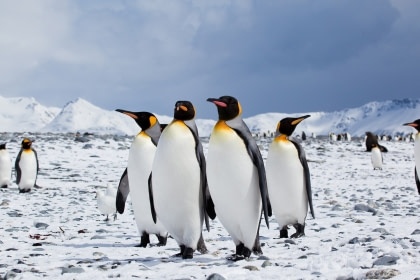
King Penguin
Wildlife
Second in size only to the emperor penguin, these colorful divers look so different than their own chicks that they were once thought to be a different species
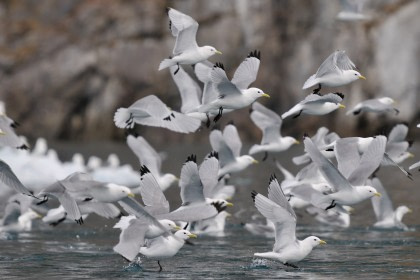
Kittiwake
Wildlife
Named for their own bird call, these cliff-nesting "three-toes" are the most abundant gulls on the planet
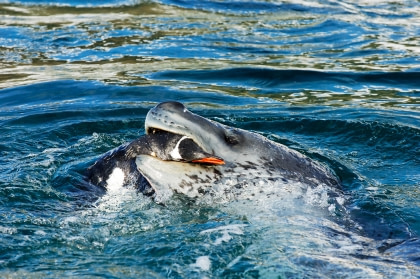
Leopard Seal
Wildlife
These "slender-clawed water workers" spend much of their lives submerged, though it's known they are the only member of their family to consume other seals
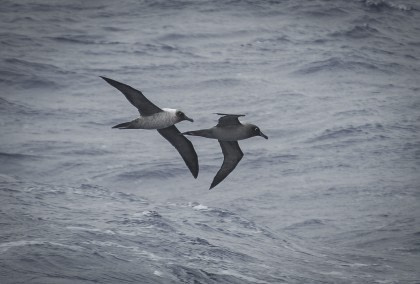
Light-mantled Albatross
Wildlife
Though these black-billed birds are so efficient at flying that they spend more energy at nest than in the air, they're often less than masterful at landing
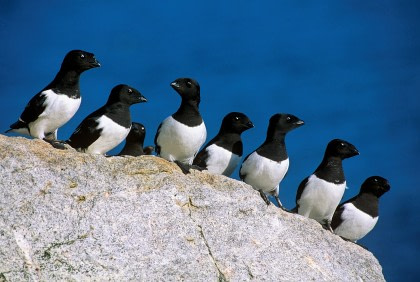
Little Auk
Wildlife
The most numerous bird in the Svalbard archipelago, these fast-growing "sea doves" have colonies that sometimes number in the millions
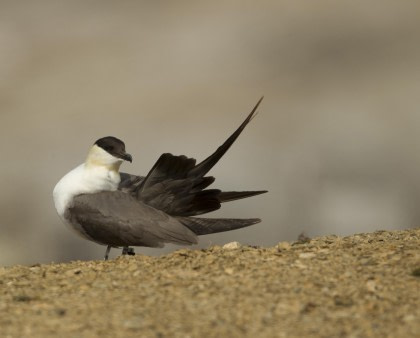
Long-tailed Jaeger
Wildlife
These smallest members of the skua family make up in nerve what they lack in size, often feeding themselves on fish they've caused other birds to drop
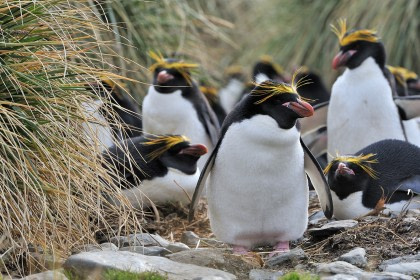
Macaroni Penguin
Wildlife
Named for their orange plume feathers, these shallow-nesting hoppers are the largest of the crested penguins
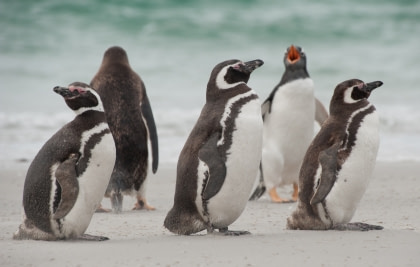
Magellanic Penguin
Wildlife
These timid feather-shedders are named after the famed Portuguese explorer whose crew spotted them in 1520
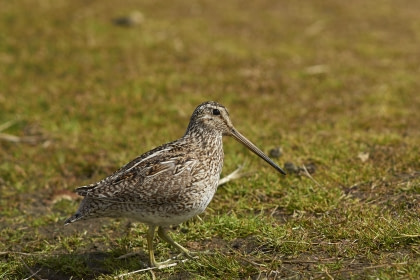
Magellanic Snipe
Wildlife
Keep an eye out for these adept coastal foragers on a visit to the Falkland Islands
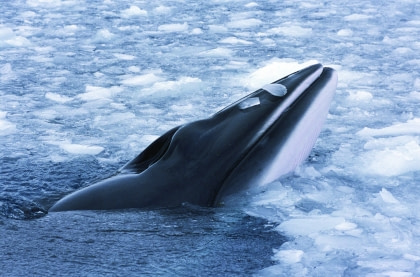
Minke Whale
Wildlife
Though the smallest of the fin whales, these migrating mammals can let out a cry as loud as a plane taking off
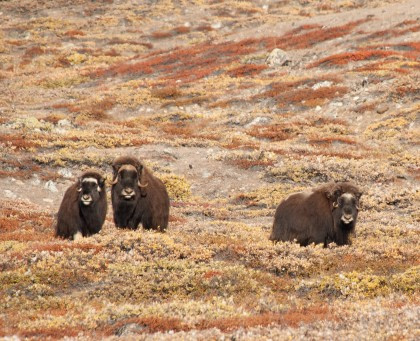
Musk Ox
Wildlife
Among the few hooved animals to survive the last ice age, these goat-like creatures have an underlayer of fur that is one of the world's warmest natural fibers
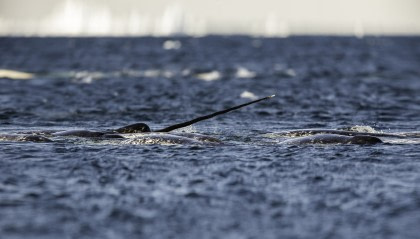
Narwhal
Wildlife
Horned on the head with what is in fact a large canine tooth, these beluga relatives were named for their cadaverous color
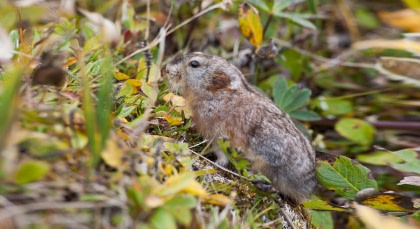
Nearctic Collared Lemming
Wildlife
These small-scale members of the Arctic family not only design their living quarters to perfection, they're the only polar rodent to custom-fit their fur color to the snowfall
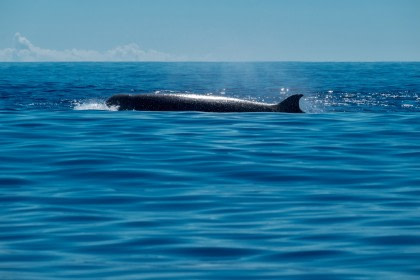
North Atlantic Bottlenose Whale
Wildlife
These naturally friendly whales, heavily hunted in the early 1900s due to their trusting disposition, are among the deepest-diving mammals in the world
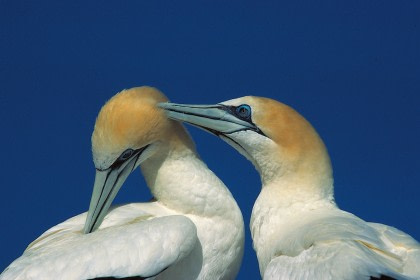
Northern Gannet
Wildlife
Known for their voracious appetites, these Arctic birds have so much trouble walking that they take off better from the water than the land
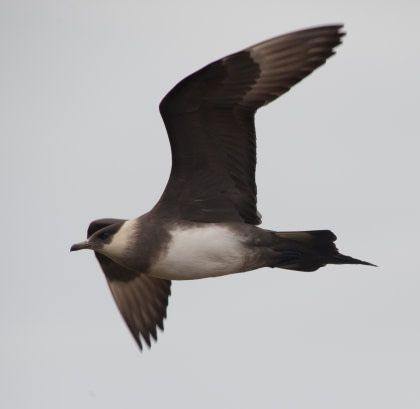
Parasitic Jaeger
Wildlife
These far-ranging fliers are known for their love of (and skill for) thievery, pilfering most of their winter migration diet
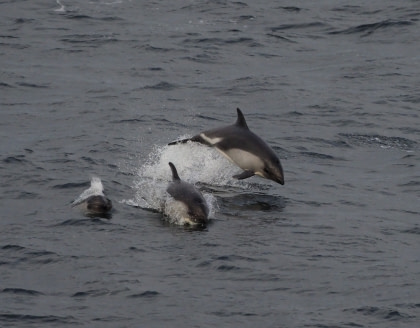
Peale’s Dolphin
Wildlife
Found in the waters of South America, this small dolphin can sometimes be seen in energetic groups of up to 100
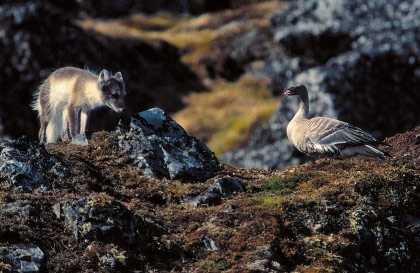
Pink-footed Goose
Wildlife
The most common type of goose in Svalbard, these soil grubbers release sizable carbon emissions through their digging
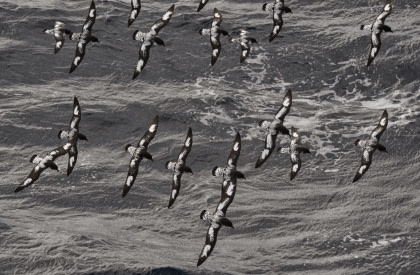
Pintado Petrel
Wildlife
Decked out in their distinctive dappled coloring, these dapper "little devourers" have a pigeon-like habit of pecking at the water while feeding
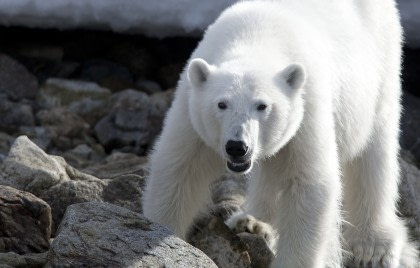
Polar Bear
Wildlife
Awe-inspiring icons of the circumpolar north, polar bears are majestic to behold, terrifying to confront, and as essential to the Arctic as ice and snow
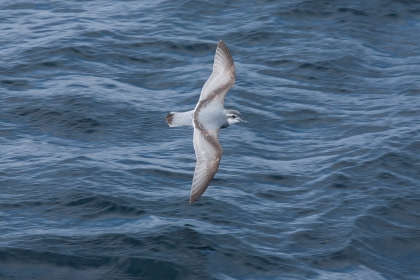
Prion
Wildlife
Named after the Greek word for "saw" due to their serrated bills, these marine petrels like to flock over surfacing whales to grab the fish that rise with them
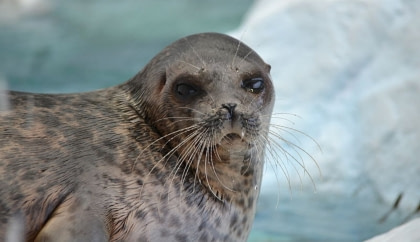
Ringed Seal
Wildlife
These are the most populous seals in the Arctic, and though also the smallest are capable of boring through ice sheets thicker than their bodies are long
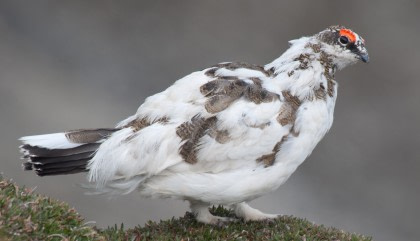
Rock Ptarmigan
Wildlife
"Snow chickens" in the US, "thunder birds" in Japan, "hare feet" in Greek, and "croakers" in Gaelic, these grouse relatives have no shortage of international identities
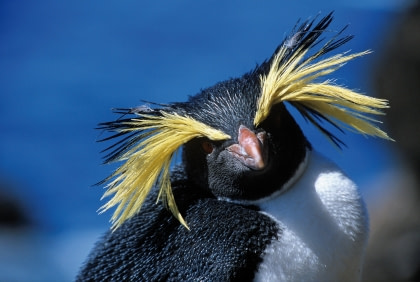
Rockhopper Penguin
Wildlife
One moment these golden-haired divers are sleeping on the water, the next they can be swimming so fast they launch themselves ashore onto their bellies
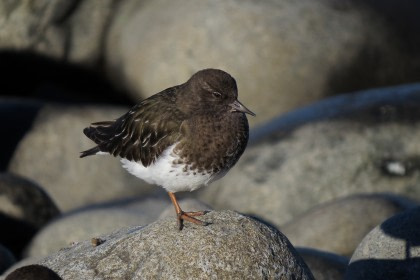
Ruddy Turnstone
Wildlife
These sandpiper relatives fly over 1,000 km or 600 miles in a day's migration, living so far north that few studies have been made as to their breeding habits
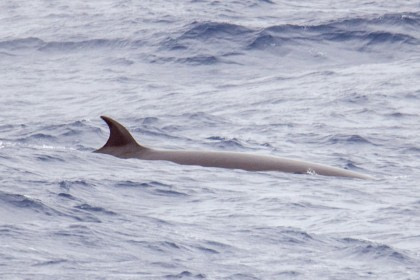
Sei Whale
Wildlife
Among the largest of their parvorder, these "winged whales" usually prefer warmer waters than their polar-traveling baleen relatives
